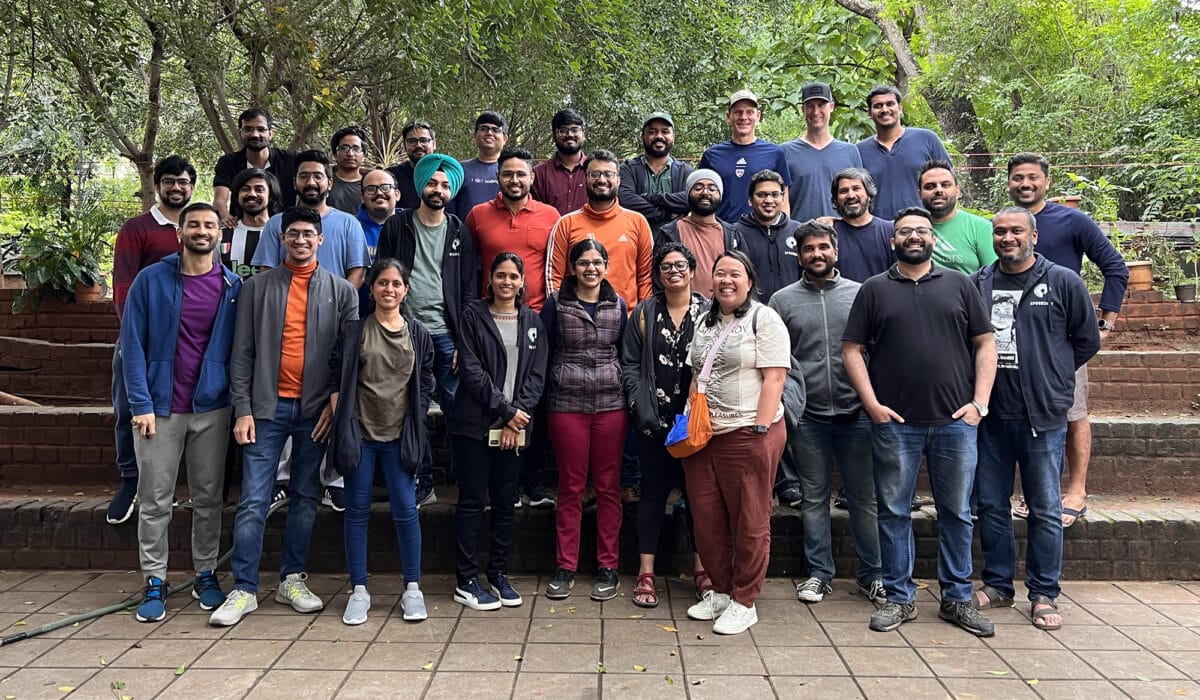In 2008, Bimal Tamrakar used his background in computer science while working at an e-discovery service provider called Onsite3. He helped develop the software, which provided litigation support services to law firms and corporations.
It was a hot time for the e-discovery market due to an uptick in lawsuits and bankruptcies during the financial crisis, Tamrakar explained. When his time at the company came to an end, connections in the industry suggested he build his own e-discovery platform. “OK, let’s do it,” he remembered thinking.
He chose his partners strategically. Arestotle Thapa, Steven Tan and Chris Jurkiewicz, who he knew through Onsite3, all had a deep technical understanding of the industry. They would build out Venio Systems, which ultimately sold for $20 million in 2020, Tamraker said.
Growing Venio Systems with a customer-centric approach
Fairfax, Virginia-based Venio Systems is software that handles data for litigation teams and allows attorneys to quickly upload, analyze and review electronic versions of documents. It helps corporations, law firms, government agencies and e-discovery providers save time, reduce errors and cut costs.
Tamrakar said he and his team grew the company in part by focusing on their customers and understanding their needs. They started by getting feedback from their industry connections, then they grew primarily through word-of-mouth.
Along the way, they remained focused on customer feedback and customer service.
“We collaborate with partners to ensure we are providing a value-add platform and compelling user experience that takes personal experiences into account during the design phase,” Tamrakar wrote in a blog post. “We have designed a platform that provides options for our clients to choose from and build what they need.”
It took about five years for Venio Systems, which was bootstrapped, to become profitable. From there, it grew quickly, Tamrakar said — “but we wanted more investments and resources.”
Not all the founders were sold on selling Venio Systems
Around 2018, a decade after launching the company, the four founders began to toy with the idea of selling Venio Systems. On one hand, it was their “baby,” Tamrakar described. On the other hand, what if they received a lucrative offer?
Some of the founders felt more eager to sell than others, Tamrakar said. But all the founders ultimately agreed: They would at least explore the option. If they could find a buyer willing to offer $20 million or more — a 4x multiple of their $5 million forecasted annual revenue — then they’d go for it.
Tamrakar and team worked with Kenyon Group, an M&A advisory group that specializes in mid-market companies in the legal industry. Through them, they found a buyer: Software Growth Partners, a private equity firm that takes a hands-on investment approach with software companies. (Tamraker did not disclose the buyer, but it was announced via this press release.)
Deal discussions began in January 2020. “It was smooth — but hectic — because COVID hit, and the deal slowed down,” Tamrakar said. Even so, the deal closed in August 2020.
The company sold for $20 million, Tamrakar said. The offer was appealing because the buyer had similar companies in their portfolio, and they were growth focused.
At sale, the team was about 35 employees, including 15 in the U.S. and a 20-person development team overseas, Tamraker said.
After the acquisition, the other three co-founders stayed at Venio Systems, while Tamrakar focused on his role as CEO of Nepasoft Solutions.
Tamraker’s parting advice to founders is simple: Follow your intuition, and always explore your options.

